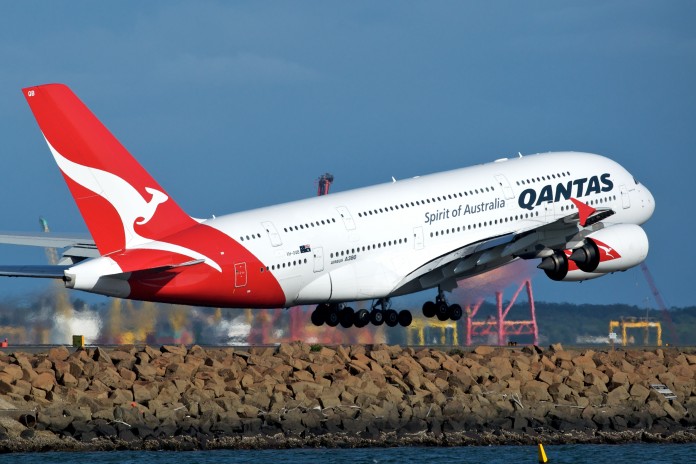Qantas has been named as the world’s safest airline for the third year running by Australian review website AirlineRatings.com.
Virgin Atlantic was the only British full service carrier to feature in the top 20, scraping in at number 19. British Airways fell out of the top 10 this year.
AirlineRatings.com said Qantas took the top slot due to its ‘fatality free’ record and a number of other factors.
Air New Zealand came second and Alaska Airlines third, followed by All Nippon, American Airlines, Cathay Pacific, Emirates, Etihad, EVA Air and Finnair.
Of the airlines surveyed, 148 received the top seven-star ranking, but BA scored only six and Ryanair had five, the same as Malaysia Airlines which lost two aircraft in 2014.
Airlines that received only one star and were considered to be the least safe in the world were all found in Indonesia, Nepal and Suriname.
The 10 least safe were Batik Air, Bluewing Airlines, Citilink, Kal-Star Aviation, Lion Air, Sriwijaya Air, TrnsNusa, Trigana Air Service, Wings Air and Xpress Air, according to AirlineRatings.com.
Aer Lingus topped a new list introduced for the best budget airlines, followed by Flybe in second place and HK Express in third. Thomas Cook and TUI Fly came in at six and seven respectively.
The editors of AirlineRatings.com said these airlines were chosen because of their excellent safety records and they meet IATA standards. Ryanair, Europe’s biggest budget airline, is not a member of IATA.
Other factors considered by AirlineRatings.com include audits by aviation authorities and governments, reported incidents from the past 12 months and an airline’s fatality record.
Meanwhile, the South Korean transport ministry has ordered a safety audit of all the country’s low cost carriers after a JIn Air Boeing 737 took off with a door partially open.
The flight turned back back shortly after take-off from Cebu, Philippines en route to Busan, after some of the 163 passengers complained of loud noise and headaches.
“All low-cost carriers will undergo an overall inspection of their safety management to prevent similar accidents,” the transport ministry said in a statement.
“It seems that the noise was caused by wind coming through a small gap in the door, which had not been closed properly. An alarm signaled a problem with air pressure, so we decided to return to Cebu,” a Jin Air spokesman said.
The transport ministry added: “We will investigate the maintenance and operation records of the plane. If any regulations were violated, we will fine the airline.”
Jin Air is a low cost affiliate of major carrier Korean Air.
























